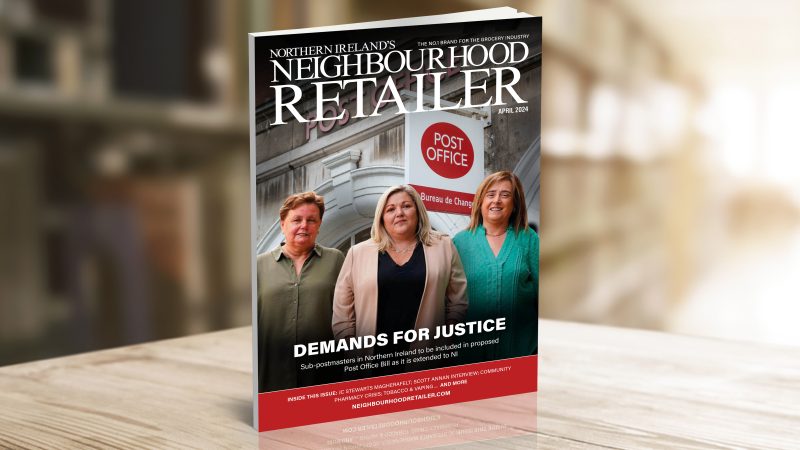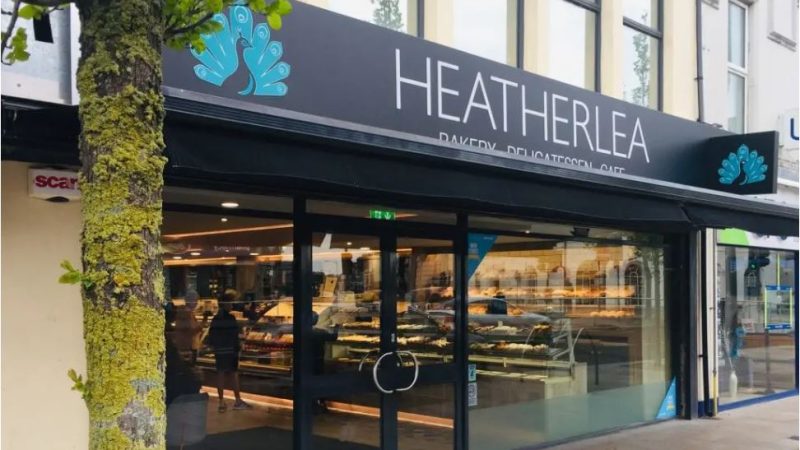NI Protocol – end of the grace period in sight – hope for an extension

With less than a month to the end of the ‘grace period’ – that’s the three month period allowing supplies between GB and NI to flow without the necessary paperwork – the real impact on retailers is still to come.
However there is still hope of an extension – as Aodhan Connolly of the NI Retail Consortium explained.
“We had a constructive meeting with Michael Gove and Maroš Sefčovič recently*, where the principle of the need for an extension of the grace period was recognised. They were actively listening and that gave us some sort of buoyancy” said Aodhan “Although there is still much to be done.
Longterm stability
“We were clear about four things – the need for stability, for certainty – with long term solutions, for simplicity and digitisation of the process – including the trusted trader scheme, and for affordability.
“We think they understood that.
“There is hope but it’s important for both sides to understand their commitments – we’re not asking for anything that they haven’t already promised.”
Neighbourhood Retailer will feature an in-depth analysis of the NI Protocol in its forthcoming March edition – as this could be one of the most crucial factors impacting on the sector in decades.
The ‘Irish Sea checking process’ could be overwhelmed by added bureaucracy when grace period for grocery goods ends on April 1, when the 3-month exemption period ends. Without an extension, after April 1, retail agri-food products will require EU Export Health Certificates to move from GB to NI – and that’s when retailers really could see the impact on their shelves.
There has been clear anecdotal evidence of some retailers finding it difficult to source specialist ‘niche’ products such as certain cheeses and cured meats.
‘Not worth their while’
Small suppliers of agri-foods goods have stated that the level of business they do in Northern Ireland means the added cost of paperwork makes it ‘not worth their while’ as overheads outweigh profits.
On 1st April, retail agri-food products will require EU Export Health Certificates (EHCs) to move from Great Britain to Northern Ireland. The DUP has said there are not enough vets to cope with processing certificates.
Export Health Certificates
Businesses must use Export Health Certificates (EHCs) to import chilled, processed meat – this covers products like fresh sausages and minced meat.
As NI has remained part of the EU’s single market for goods, it means that food products entering from the rest of the UK must undergo EU import procedures.
Central to this are the EHCs – signed by a vet for every consignment of products of animal origin – meat, fish, dairy and eggs.
Worst case scenario
The worst case scenario is that this has potential to create political instability – when the economy is already under stress by both Covid and Brexit.
Calls for the grace period to be extended are being considered – with calls to even extend it as far as 2023. However this unpredictability just adds to the uncertainty around supplies – particularly of agri-foods, meat and dairy.
The HM Government has been promoting its Trader Support Service for businesses moving goods from GB to Northern Ireland to deal with the new rules, make declarations and avoid delays, (gov.uk/tradersupportservice).
*Maroš Šefčovič is a Slovak diplomat and politician serving as Vice-President of the European Commission for Interinstitutional Relations since 2019







